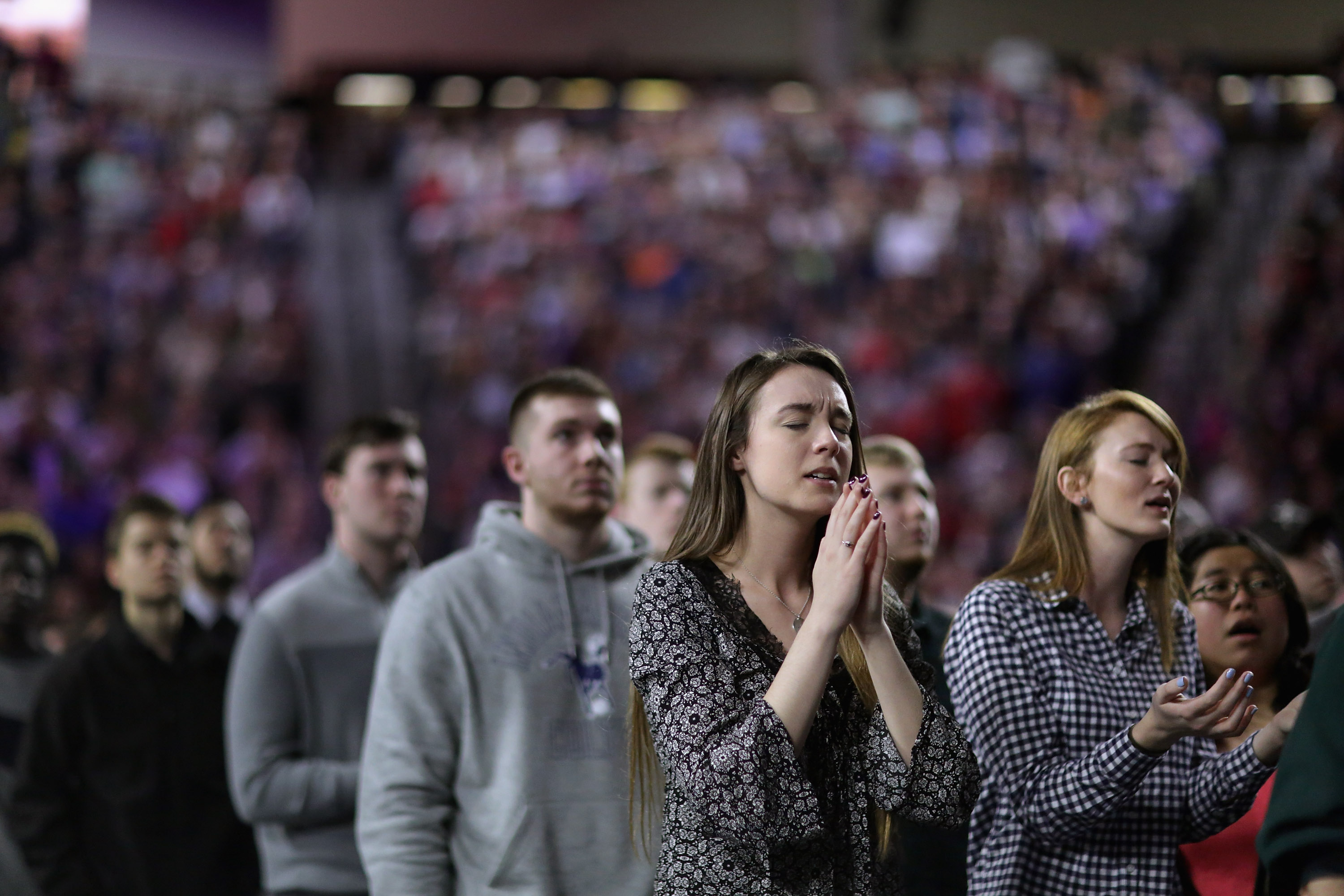Democrats need to get religion
It might help them understand that identity politics aren't always the answer


A free daily email with the biggest news stories of the day – and the best features from TheWeek.com
You are now subscribed
Your newsletter sign-up was successful
Democrats, liberals, and progressives are now stuck arguing about identity politics, the alt-right, the white working class, and how Hillary Clinton managed to blow the most winnable presidential election in decades.
They need to get religion.
Few on the left want this to be true. In fact, they increasingly believe that putting "religion in politics" can only distance us from true justice. To make matters worse, even some liberals who think identity politics has led liberalism itself astray can't seem to recognize the importance of reconnecting with religious belief and experience in an intellectually available way. The apparent political poison of religion, however, is actually liberals' cure.
The Week
Escape your echo chamber. Get the facts behind the news, plus analysis from multiple perspectives.

Sign up for The Week's Free Newsletters
From our morning news briefing to a weekly Good News Newsletter, get the best of The Week delivered directly to your inbox.
From our morning news briefing to a weekly Good News Newsletter, get the best of The Week delivered directly to your inbox.
In a recent New York Times op-ed convulsing the left, Mark Lilla warned that the liberal information and entertainment elite should "begin educating itself about parts of the country that have been ignored, and about what matters there, especially religion." True! But Lilla should have been more explicit: It's come to this because ignorance and hostility toward theological matters have led directly to the political left's "fascination with the identity drama" now tyrannizing much of the American imagination.
The cultural vanguard that refuses to countenance divine commands and constraints has lost itself in a dangerous performance where identity is first problematized and then all but worshiped.
Contrary to the ardent wishes of Neil DeGrasse Tyson and Co., America's secular life and secular imagination is often more irrational than the lives of everyday Christians. Why? In the absence of the forbearance, humility, and presence to grace that living theologically fosters, our super-rational longings for a perfection, purity, and wholeness beyond what nature achieves get plowed into politics. Identity politics might strike its critics as inherently fragmentary and divisive, but it channels exactly the opposite sort of vision, to a fault. Many secular liberals believe the most important thing about being human is demanding a radical kind of mastery over all differences, to know the due of each and withhold it from none. This vision of perfect justice that animates identity politics asserts and demands a totality of influence over public and private life that would make many moralists blush — or tremble.
That's why it's so important that Democrats trying to advance through Trump trauma open themselves to consider how religion offers more than a fat moldering Bible to bludgeon or brandish at people you hate.
A free daily email with the biggest news stories of the day – and the best features from TheWeek.com
Religion could help Democrats struggling with identity politics. It could help relieve the impossible burden of perfect justice (without licensing injustice), and lift the impossible burden of determining for ourselves who we and everyone else "really" is (without eradicating our identities). The truth obscured by the identitarian vision of politics, and revealed by living theologically at its best, is that the most important thing about being human is that we're all human, and that how we are in light of that reality is more important than who we are.
For religiously minded people across the political spectrum, this truth is often spoken of in terms of perfect love, which is ready at hand for us to experience right now — and not perfect justice, which will elude us as long as we remain human.
James Poulos is a contributing editor at National Affairs and the author of The Art of Being Free, out January 17 from St. Martin's Press. He has written on freedom and the politics of the future for publications ranging from The Federalist to Foreign Policy and from Good to Vice. He fronts the band Night Years in Los Angeles, where he lives with his son.
